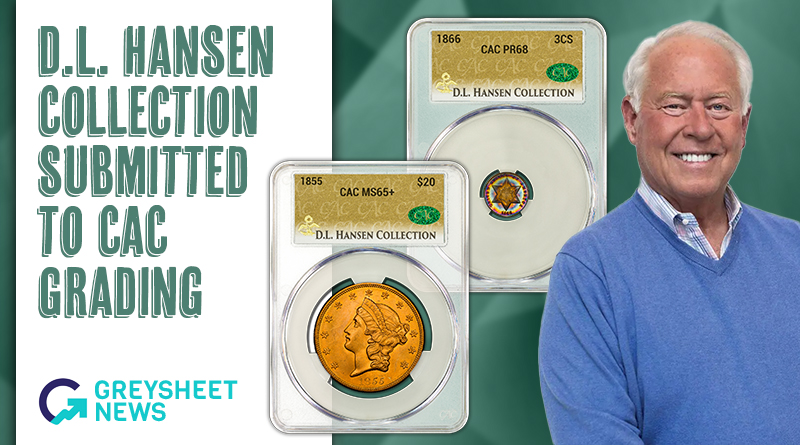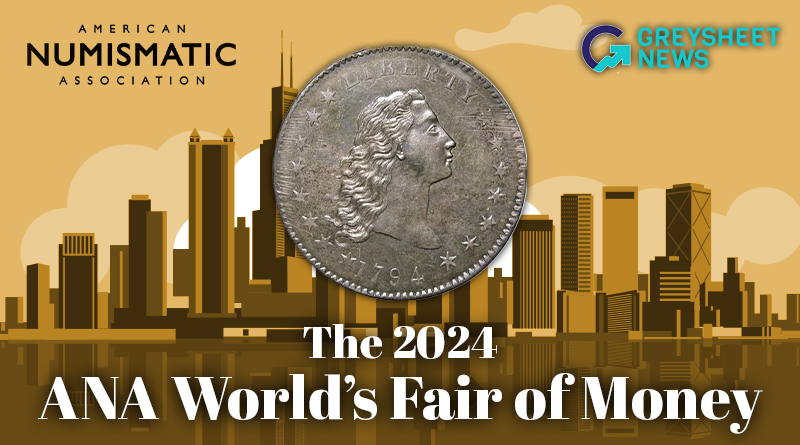Greysheet & CPG® PRICE GUIDE
- U.S. Coins /
- Half Dimes /
-
Flowing Hair Half Dimes (1794-1795) Values
About This Series
Including all major types, there are three separate early half dimes series, including the Flowing Hair (1794-1795), Draped Bust (1796-1805), and Capped Bust (1829-1837). There are also two subtypes within the Draped Bust series. These include the Small Eagle Reverse (1796-1797) and Heraldic Eagle Reverse (1800-1805). These major types and the Draped Bust subtypes are generally identical to the dimes of their respective contemporary periods.
All early half dimes are considered scarce, with this being the case particularly with the Flowing Hair and Draped Bust types. Professional Coin Grading Service (PCGS) estimates there are only 550 examples of the first-year 1794 half dime and fewer than 1,800 specimens of the 1795, with the vast majority of both dates represented by well-circulated pieces. The Draped Bust half dime is no less challenging, and with a bevy of widely recognized scarce varieties, completing a collection of Draped Bust half dimes is by far one of the most financially complex numismatic undertakings.
Capped Bust half dimes are comparably more common and easily obtainable than their earlier counterparts but also present their own challenges, particularly in the higher grades. This is especially true with the 1836 and 1837 half dimes, which have lower certified populations.
Catalog Detail
Legal Disclaimer
The prices listed in our database are intended to be used as an indication only. Users are strongly encouraged to seek multiple sources of pricing before making a final determination of value. CDN Publishing is not responsible for typographical or database-related errors. Your use of this site indicates full acceptance of these terms.
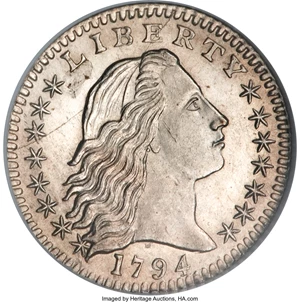


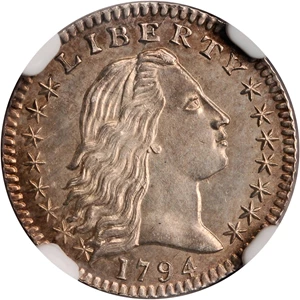


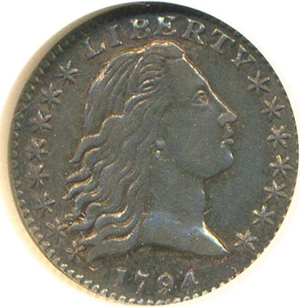
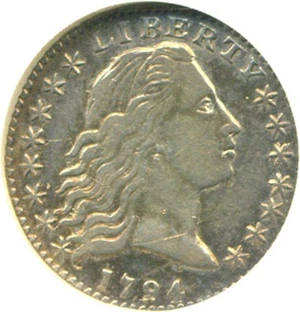
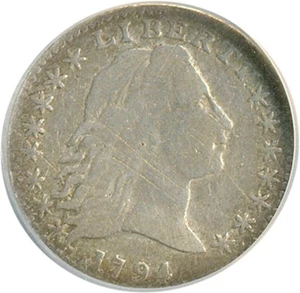

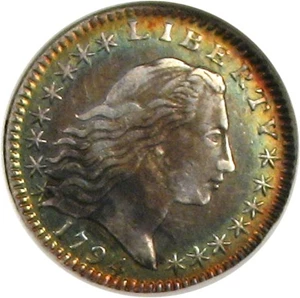
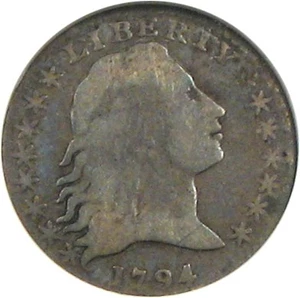

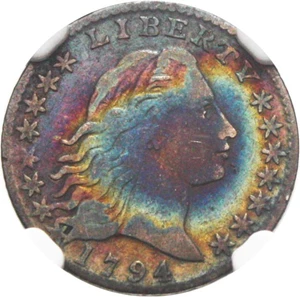
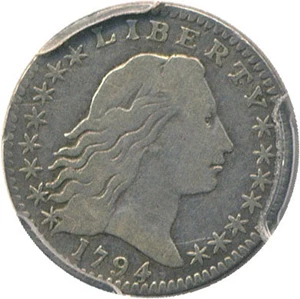
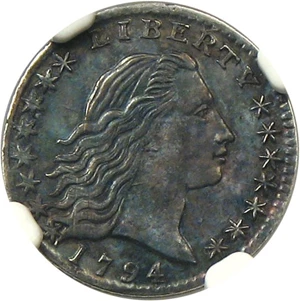
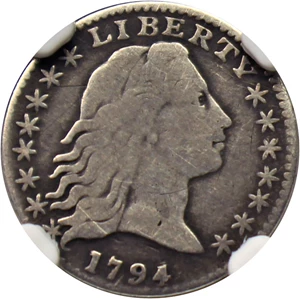
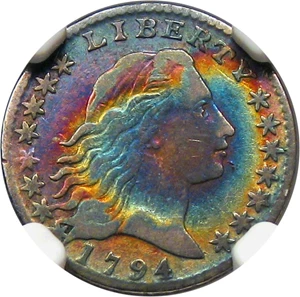
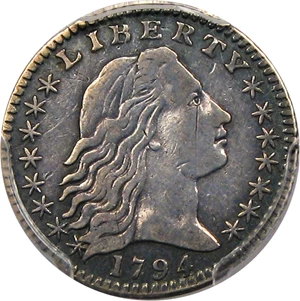
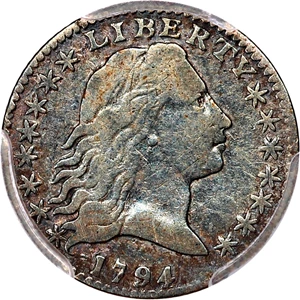
| Flowing Hair Half Dimes (1794-1795) | Value Range | Favorite | |||
|---|---|---|---|---|---|
| Flowing Hair Half Dimes (1794-1795) | Value Range | ||||
|
$900
-
$165,500
$900 - $165,500
|
||||
|
$1,500
-
$300,000
$1,500 - $300,000
|
||||
|
$2,050
-
$43,500
$2,050 - $43,500
|
||||
|
$1,650
-
$330,000
$1,650 - $330,000
|
||||
|
$1,500
-
$300,000
$1,500 - $300,000
|
||||
|
$1,500
-
$300,000
$1,500 - $300,000
|
||||
|
$210,000
-
$648,000
$210,000 - $648,000
|
||||
|
$900
-
$165,500
$900 - $165,500
|
||||
|
$8,250
-
$27,500
$8,250 - $27,500
|
||||
|
$5,500
-
$54,500
$5,500 - $54,500
|
||||
|
$975
-
$182,000
$975 - $182,000
|
||||
|
$9,500
-
$39,000
$9,500 - $39,000
|
||||
|
$1,250
-
$62,000
$1,250 - $62,000
|
||||
|
$4,500
-
$11,500
$4,500 - $11,500
|
||||
|
$1,150
-
$24,500
$1,150 - $24,500
|
||||
|
$900
-
$165,500
$900 - $165,500
|
||||
|
$900
-
$165,500
$900 - $165,500
|
||||
|
$900
-
$165,500
$900 - $165,500
|
||||
From the Greysheet Marketplace
Buy Now: $9,500.00
Buy Now: $33,531.25
Buy Now: $3,237.50
Buy Now: $1,803.75
Buy Now: $33,531.25
Buy Now: $10,591.25
Buy Now: $3,600.00
Buy Now: $1,480.00
Buy Now: $4,509.38
Buy Now: $2,058.13
Related Stories (powered by Greysheet News)
View all news
Greysheet Catalog Details
Including all major types, there are three separate early half dimes series, including the Flowing Hair (1794-1795), Draped Bust (1796-1805), and Capped Bust (1829-1837). There are also two subtypes within the Draped Bust series. These include the Small Eagle Reverse (1796-1797) and Heraldic Eagle Reverse (1800-1805). These major types and the Draped Bust subtypes are generally identical to the dimes of their respective contemporary periods.
All early half dimes are considered scarce, with this being the case particularly with the Flowing Hair and Draped Bust types. Professional Coin Grading Service (PCGS) estimates there are only 550 examples of the first-year 1794 half dime and fewer than 1,800 specimens of the 1795, with the vast majority of both dates represented by well-circulated pieces. The Draped Bust half dime is no less challenging, and with a bevy of widely recognized scarce varieties, completing a collection of Draped Bust half dimes is by far one of the most financially complex numismatic undertakings.
Capped Bust half dimes are comparably more common and easily obtainable than their earlier counterparts but also present their own challenges, particularly in the higher grades. This is especially true with the 1836 and 1837 half dimes, which have lower certified populations.
Catalog Detail
Legal Disclaimer
The prices listed in our database are intended to be used as an indication only. Users are strongly encouraged to seek multiple sources of pricing before making a final determination of value. CDN Publishing is not responsible for typographical or database-related errors. Your use of this site indicates full acceptance of these terms.





 Loading more ...
Loading more ...








